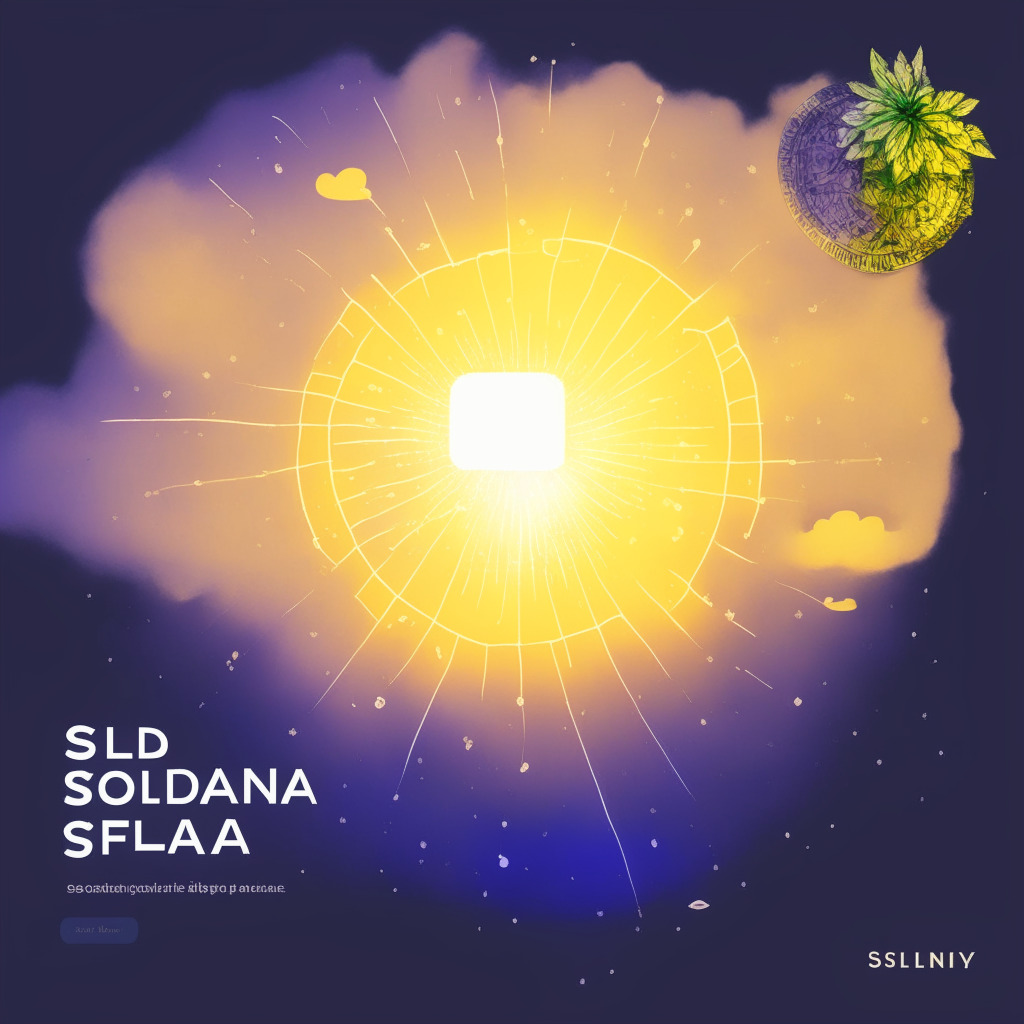In a remarkable move, Swiss company Distributed Technologies Resources (DTR) introduces a Dirham-supported stablecoin named DRAM. This token, unveiled today, October 3, 2023, is the result of the vison of founder Akshay Naheta, formerly an executive at SoftBank. The virtual equivalent of the UAE’s own currency hopes to provide a smooth channel for users in other regions to transfer value across borders.
The DRAM stablecoin, developed by Hong Kong-based Dram Trust, is now listed on widely-used decentralized exchange protocols like Uniswap and PancakeSwap, trading with Binance Coin (BNB) pairing. Nonetheless, the stablecoin won’t be available to UAE and Hong Kong users.
Stablecoins, by their unique design, present interesting benefits and obstacles. DRAM, just like other stablecoins, follows the ERC-20 token standard, implying it is fungible – it can be exchanged one-for-one for a Dirham. However, will the limited access to DRAM affect its potential for global adoption? Is it missing out on significant potential by excluding investors and users within UAE and Hong Kong?
Interestingly, the UAE government is simultaneously striving towards the launch of its central bank digital currency (CBDC). A partnership between the UAE government and India’s Reserve Bank has forged a CBDC bridge for seamless value exchange and remittances between the two countries, a result of an understanding inked on March 15, 2023.
Looking back at DTR, it’s not their first foray into the innovative tech space. The firm began operations circa 2019, initially focusing on a test pilot of a decentralized payment platform named Unit-e. Despite attracting attention from leading academic and research institutions like Stanford University, MIT, and the University of Illinois, the initiative didn’t achieve mass appeal. That experience steered DTR toward a product in high demand – DRAM.
The choice of the UAE’s fiat currency for DRAM underscores the strong economy of this Middle Eastern nation, as well as the burgeoning interest in secure, digital asset investments in and around this region. Indeed, the UAE, with its lucrative oil and tourism sectors, has become an evolving blockchain and fiscal hub, attracting businesses through its Virtual Asset Regulatory Authority (VARA), which promotes an atmosphere conducive for crypto firms.
Binance has already marked its presence in UAE, and others are considering following suit. Let’s not dismiss the fact that a recent report from Chainalysis indicates a considerable uptick in crypto adoption in the region within the past year, with only Israel outdoing the UAE in decentralized exchange activities.
In summary, while DRAM reflects a promising leap in fiat-backed stablecoins, and by extension, blockchain technology, the notable exclusion of users from certain jurisdictions may impact its broader acceptance.
Source: Cryptonews




